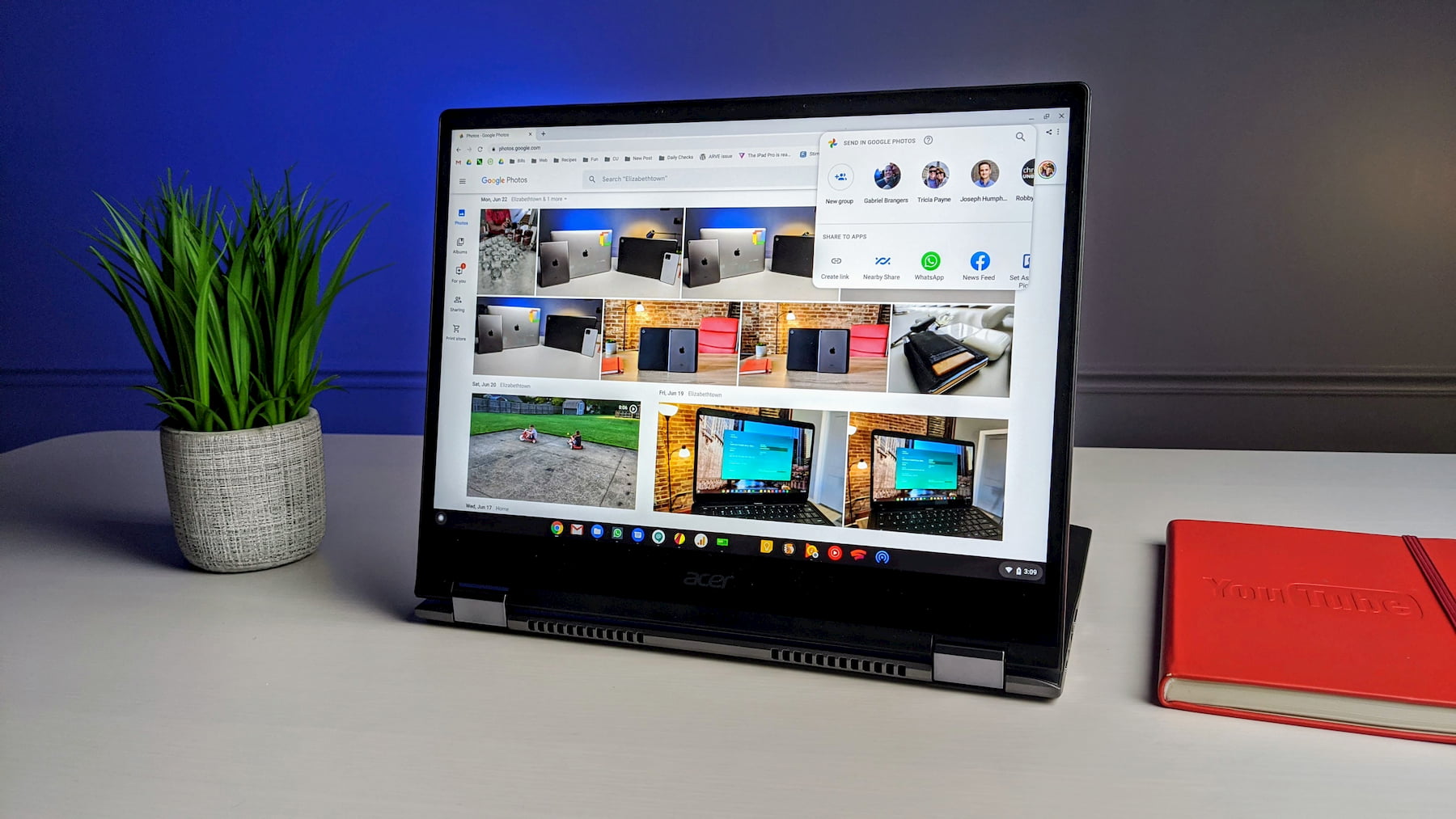
One of my favorite parts of Android has always been the rich, connected ecosystem of app sharing. From the early days, Android has always cultivated an interconnected setup that allows apps on your phone to share bits of data swiftly and easily from one to the next. This behavior has become so commonplace that I tend to look for that ubiquitous share button all over the place these days, regardless of what device I have in my hands at the moment.
When that device happens to be my Chromebook, I quickly remember that the useful Sharesheet that Android employs across most of its apps isn’t here on Chrome OS. There are a few logistic reasons for this, but none more important than the fact that Chrome OS, by its nature, is geared around the open web. On the open web, everything has a URL, so everything is sharable by default. Need to get you to a photo I just saw? I can copy the link and send it to you. Want to read what I just read? A link to the article will do just fine. I don’t need a dedicated share button to copy and paste a link, after all.
Android’s Sharesheet is coming to Chrome OS
According to a handful of commits dug up by the guys over at 9to5 Google, it looks like the Android Sharesheet we know and love is on the way for Chromebooks. With the added ability of Chromebooks to more-fully leverage Android apps across the board, this only makes sense. As users from other platforms approach a Chromebook, they are going to be looking for familiar ways of doing the things they are used to doing on devices that run Android. Sharing, as stated above, is a big part of that experience.

From the looks of this commit, the flag for a system-wide Sharesheet is on the way and will likely posses all the customary functionality that we’re all quite used to with Android at this point. As a very helpful addition, PWAs with the proper code in place can also be included in this Sharesheet provided the app’s developers have declared a ‘share target’. This would initially give Chrome OS the ability to share between apps both on the Chrome OS and Android side of things. At some point in the future, perhaps even Linux apps and the upcoming Windows apps on Chromebooks will also get involved.
With our hopes that we’ll eventually see even more mobile-focused Chromebooks in the upcoming months similar to the Lenovo Chromebook Duet (and hopefully even better), having more of a mobile device-based take on sharing content between devices and users will go a long way towards making Chrome OS conversion a bit more palatable for those coming over from a rival desktop OS. Familiar UI and functionality pieces are central to making users feel comfortable and settled at the outset, so the more of these types of features we see migrate from Android, the better.


Leave a Reply
You must be logged in to post a comment.